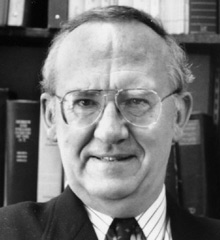Introductory Issues in Ecclesiastes
Revised by Cameron B.R. Howard (10/23)
Ecclesiastes and SolomonThird king of Israel who was known for wisdom and building the first Temple. More
While references in the book to “the son of DavidSecond king of Israel, David united the northern and southern kingdoms. More, king in Jerusalem” (1:1) and “king over Israel” both suggest a king as the author, with Solomon as the likely candidate, there are problems with identifying the author as Solomon. That king is never named in the book. The “king” association is dropped after chapter 2. “All who were before me in Jerusalem” does not fit with Solomon, who was only the second king of Israel in Jerusalem. (Though SaulThe first king of Israel. More was the first king of Israel and David the second, it was David who established monarchic rule from the city of Jerusalem.) Most important, the language of the book is clearly that of a time later than Solomon. There are at least two Persian loan words in the book (translated “parks” in 2:5 and “sentence” in 8:11), which point to a time during or after Persian rule, that is, after 539 BCE.
The epilogue
Many interpreters see the final section (Ecclesiastes 12:9-14) as a late addition to the original composition and thus of less value than the “original” part of the book. If we read the book as a whole, however, the epilogue provides clues for understanding the message of the whole. We observe something of the Teacher’s method of working in 12:9-10, some advice for young scholars in 12:12, and a summary of the message of the book in 12:13.
Hevel (“vanity,” New Revised Standard Version)
Since the word occurs 37 times in this book, it is important to get its sense. Though its literal meaning is “breath” (IsaiahIsaiah, son of Amoz, who prophesied in Jerusalem, is included among the prophets of the eighth century BCE (along with Amos, Hosea, and Micah)–preachers who boldly proclaimed God’s word of judgment against the economic, social, and religious disorders of their time. More 57:13), vapor, or cloud of steam, far more of its occurrences in the Hebrew Bible point to a sense of fruitlessness. This thematic word runs like a pedal point on an organ throughout the entire book. Interestingly, hevel is translated as “AbelThe second son of Adam and Eve who was murdered by Cain. More,” the son of AdamThe first human God created. More and EveThe name of the first woman, wife of Adam. More, in Genesis 4. Already at the beginning of the Bible there is an allusion to the transitory nature of the human being in the name “Abel/hevel.” And, indeed, Abel is the first person in the Bible to die.
Luther on Ecclesiastes
Martin Luther’s commentary on Ecclesiastes remains a classic that is still useful for our own understanding of the book. Note, for example, what Luther says about Ecclesiastes 5:20: “This statement is the interpreter of the entire book: Solomon intends to forbid vain anxieties, so that we may happily enjoy the things that are present and not care at all about the things that are in the future, lest we permit the present moment, our moment, to slip away” (Luther’s Works 15:93).
Structure of the book
Some have suggested that the book is a random collection of essays and sayings with no governing structure. Others suggest a simple division into longer essays in chapters 1—6 and collections of shorter sayings in chapters 7—12. There is, however, a certain progression of thought as is suggested by the content division above. An important marker in the Hebrew text is the note that the book divides into two equal parts between 6:9 and 6:10; any consideration of the book’s structure should take this point of division into account.
Tone of the book
Does Ecclesiastes mark the “low-water mark” of Old Testament thought, as some have suggested? Is it really an especially gloomy essay? The book does indeed recognize life’s problems, including death. But the central message of the book is expressed in those passages that call for celebration of life together with family and friends and appreciation of the everyday good gifts that God provides (see Ecclesiastes 2:24-26; 3:12-13, 22; 5:18-20; 8:15; 9:7-10; 11:8—12:1). Indeed, Ecclesiastes confronts head-on some of the thorniest questions of human existence, all while affirming the mysteryA mystery is something secret, hidden and not perceived by ordinary means. In the book of Daniel a significant mystery is revealed through divine revelation (Daniel 2); Paul speaks of a mystery of God in Romans 11 and again in Ephesians 3. In speaking of… More of God.

